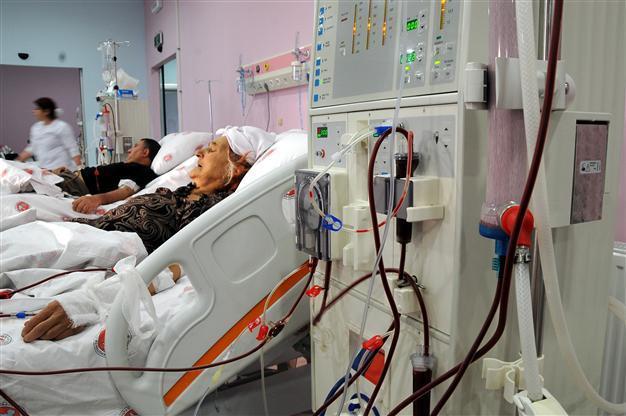More people trying to put their kidney on sale
ISTANBUL- Hürriyet Daily News

AA photo
The number of individuals applying to the Turkish Kidney Foundation to sell their kidneys as a way out of severe financial troubles has been rapidly increasing, with once weekly calls now coming 15 times a week, the foundation’s press representative, Gülizar Gün, recently told the Hürriyet Daily News.
“We used to receive such calls once a week,” Gün said. “Now there are one, two people calling every day. They talk about credit card debt and family troubles.”
In a recent press release, foundation head Timur Erk had called on the public to take notice of the increasing number of people willing to sell their kidneys despite recent campaigns by the foundation aiming to increase the number of donors.
With TV spots and celebrity appearances, the foundation still struggles to convince individuals to donate and not to sell.
“We try to convince them and warn them of the illegality of their wish,” Gün told the Daily News. “Then they move on to our Facebook page, our Twitter, they send us emails and put their kidneys up for sale.”
The foundation cannot stop the increasing demands, Gün added, especially with social media sources allowing an endless arena for marketing.
Some of the Facebook and Twitter messages on the foundation’s page, and emails sent to official accounts show true tragedies unfold as some sellers announce fixed prices, like 200,000 Turkish Liras, or 150,000, and others are seen to be willing to give up their kidneys for a minor cost in the face of ongoing financial struggles.
“If I kill myself with all this,” one email reads, “the debt will pass on to my wife and my kids. I already donated all my organs after my death, and I will gladly share my kidney now. All I want in return is help paying my debts.”
The messages and emails sent to the foundation are almost entirely filled with shame and regret for the monetary requests, but highlight cases of desperation. One user justifies the sale as “better than falling onto the wrong path” – prostitution.
Foundation officials do their best to convince callers, Gün said, in an attempt to educate society better about the illegality of organ trading. The foundation’s press release also states that some of those calls last for hours, but officials are still left uncertain whether or not the individual was convinced.
Turkey allows only two forms of organ donation as legal procedures; from live donors who are related to the patient, supervised by the Health Ministry’s ethics commissions, and for transplants taken from brain-dead cadavers. The law calls for up to nine years of imprisonment for illegal organ donations.
Society, however, seems to know little of such provisions.
“Those who offer you illegal routes are criminals,” Erk said in his plea to society. “You are risking your life and committing a crime when you’re dreaming of paying all your debts and supporting your family.”
